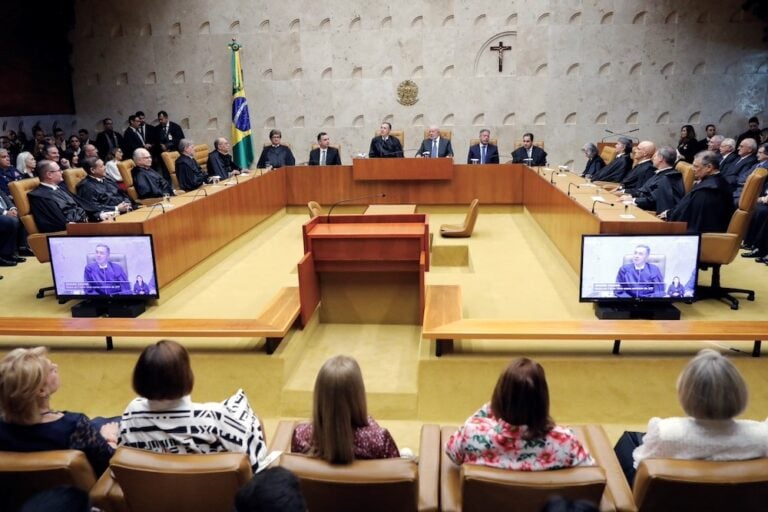The newspaper "A Tribuna" decided not to publish an article from the journalist Elio Gaspari about a report portraying human rights abuses in the prisons of Espírito Santo.
(ABRAJI/IFEX) – The newspaper “A Tribuna”, based in Vitória, capital of the Brazilian State of Espírito Santo, decided not to publish an article from the journalist Elio Gaspari, about a report portraying human rights abuses in the State’s prisons. The newspaper usually publishes Gaspari’s articles on Sundays, but did not issue the piece “As masmorras de Hartun aparecerão na ONU” (Hartung’s dungeons will be shown to the UN”). The report was due to be presented to the United Nations the following week. Paulo Hartung is the governor of Espírito Santo.
The newspaper’s executive editor would later state that Gaspari’s article was not published due to a technical issue, without specifying which one. After the possible censorship, Gaspari, who is published in a number of media outlets nationwide, decided to cease publishing in “A Tribuna”.
In the article, Gaspari describes pictures present in the report. They portray three prisoners’ dismembered bodies, “one in a can, the other in boxes and a head inside a plastic bag”. The journalist stresses that all of the crimes had occurred during Hartung’s administration. “Since the boiling of prisoners in Uzbekistan the world hasn’t seen anything alike”, he wrote.
According to the journalist, the problem was old, but had to be brought to the UN since human rights organizations could not get the government to act. “Espírito Santo has 7000 prisoners spread throughout 26 jails, with an overcrowding of 1800 people. There are prisoners kept in containers without a bathroom (equipment known as “microwaves”). Cells projected for 36 prisoners are occupied by 235 unfortunate people. Some of them get to the point of being cuffed by their feet in rooms and hallways”.
Ângelo Roncalli, the state’s Secretary of Justice recognized the problems in the State’s prison system, but alleged to the newspaper “Folha de S. Paulo” that “heavy” investment had been made, with the inauguration of 16 new prison units and the prediction of 11 more by March 2011.


